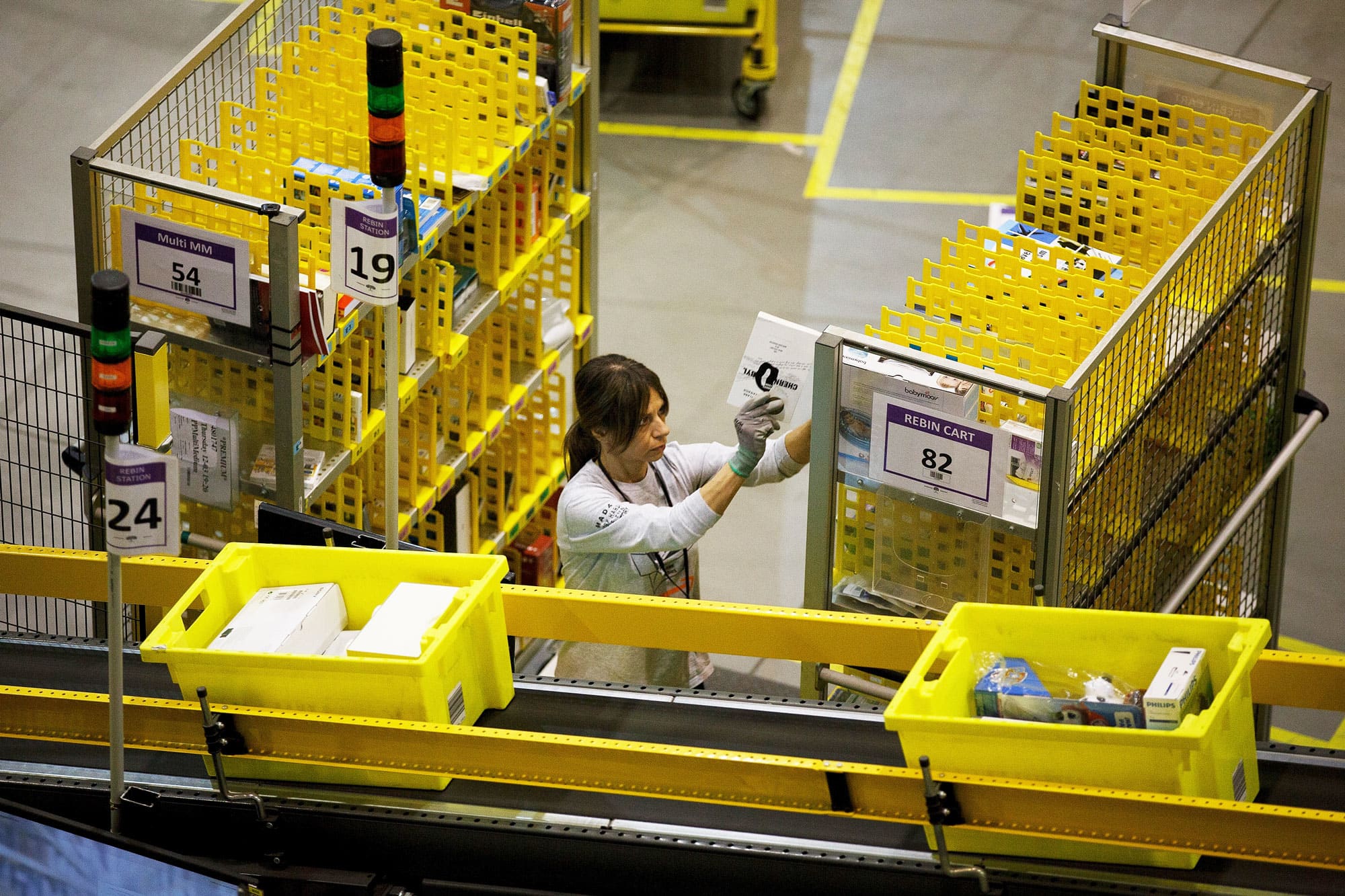
Amazon warehouse workers in Alabama are getting closer to holding a vote for union activities, laying the groundwork for the creation of the first-ever union representation in a US Amazon facility.
Employees at an Amazon fulfillment center in Bessemer, Ala., Located outside Birmingham, informed the National Labor Relations Board last month that they intended to hold elections to establish a negotiating unit represented by the Retail, Wholesale and Department Store Union. The NLRB said on Thursday that it found “enough showing” to allow for a vote, and rejected Amazon’s claims that the union had not gathered enough support.
At a hearing on Friday, Amazon and the union continued to disagree on the size of the potential negotiating unit and which workers should be eligible to vote. The hearing also aims to smooth out details such as when a union vote will take place and how it will take place. The hearing may take several days to complete.
“The parties to this case have differing views on certain job classifications as to whether those workers should be included in or excluded from an appropriate negotiating unit,” said Terry Combs, assistant to NLRB’s Atlanta Area Regional Director.
In order to get the green light for an election, the NLRB usually wants 30% of employees to sign union authorization cards or petitions. In its petition, the union said the negotiating unit would cover 1,500 full-time and part-time workers at the facility.
Amazon has argued in documents filed with the NLRB that the facility employs more than 5,700 people, suggesting that the union has collected fewer signatures than it took to move forward with elections.
It is unclear how Amazon arrived at that total. Amazon said in a 2018 announcement that it would be hiring 1,500 people at the facility.
Heather Knox, an Amazon spokesperson, said Amazon has created more than 5,000 full-time jobs in Bessemer, with an average salary of $ 15.30 an hour, health care and other benefits.
“We do not believe this group represents the majority of our employees’ opinions,” Knox said in a statement. “Our employees choose to work at Amazon because we offer some of the best jobs available anywhere, and we encourage everyone to compare our overall pay, benefits and work environment with any other company with similar jobs.”
An RWDSU spokesperson declined to comment.
Unions have organized some of Amazon’s European workforce, but no US facility has successfully unionized or joined. A successful union action in Alabama would be a groundbreaking shift for the country’s second-largest employer, which has more than 1.37 million Amazon and Whole Foods front-line employees in the US.
The pressure to unite in Alabama comes because Amazon experienced growing unrest within its warehouse and delivery staff during the pandemic. In recent months, some workers have held protests demanding safer working conditions, created online petitions to draw attention to their concerns, and formed new workers’ groups.
A website promoting the Alabama campaign says a union would help workers advocate for changes in safety, pay, disciplinary procedures and other workplace issues.
“Amazon has carried out decades of increasingly brutal and aggressive attacks on workers’ rights that have dramatically eroded union density, damaged working conditions and lowered the standard of living for many workers. And it doesn’t stop,” the website said. “Our union will not back down until Amazon is held accountable for these and many more dangerous labor practices.”
Labor experts say the hearing is only the beginning of what is likely a long way to go for Alabama workers’ union action. Amazon has taken an aggressive stance against unions in the past by clearly expressing its opposition to them among workers.
But it only takes one successful campaign at an Amazon facility to inspire others to follow suit.
“If it works, I think it will send a signal that there is some hope for employees to get organized,” said Tom Kochan, professor of industrial relations, work and employment at MIT. “But it is a tough battle because you have to organize one warehouse at a time, and that costs enormous resources.”